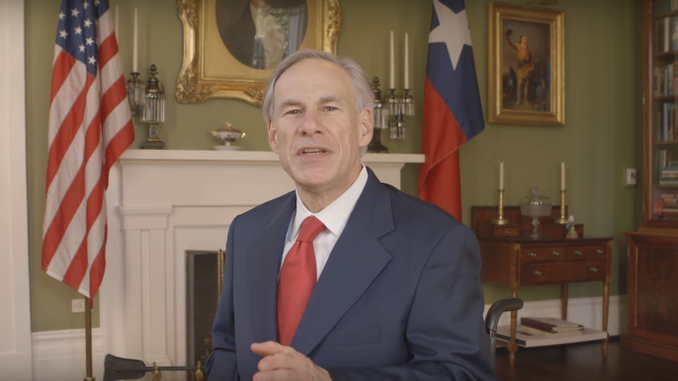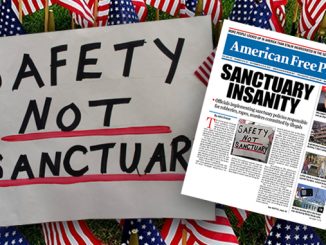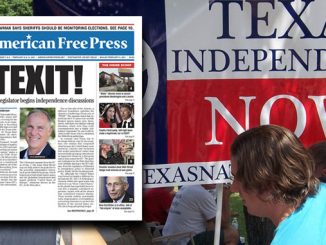
Texas’s governor recently signed two outstanding bills passed by the Republican state Congress that officially ban so-called sanctuary cities and corporate ownership of roads.
By Mark Anderson
Texas is proving itself to be a national trailblazer in confronting wide-ranging controversial issues and often leading rather than following the federal government. Two of the most recent cases include Gov. Greg Abbott signing a bill that bans “sanctuary cities” in the Lone Star State, and Abbott and the Republican-led legislature coming out against building new privately run toll roads.
On May 7, Abbott signed legislation that allows local police to ask about a person’s immigration status and threatens local law enforcement with penalties, including jail time, if they declare themselves sanctuary cities by refusing to cooperate with federal authorities in carrying out one of the most fundamental tasks of government: securing the borders with neighboring nations.
“Let’s face it, the reason why so many people come to America is because we are a nation of laws, and Texas is doing its part to keep it that way,” Abbott remarked.
The first-term Republican governor signed the anti-sanctuary legislation over the usual intense opposition from so-called immigrant-rights groups and Democrats. Those factions allege that the new law echoes Arizona’s 2010 immigration crackdown, which sparked an inflated national controversy and frivolous lawsuits.
Bug Out While You Still Can! Learn More…
The Arizona law required police to try to determine the immigration status of people during routine stops, but the Texas bill doesn’t actually instruct officers to ask. It does allow police to inquire about the immigration status of anyone they detain, including those arrested for a crime or even those stopped for traffic violations. Local officials also must comply with federal requests to hold criminal suspects for possible deportation.
Texas doesn’t have any official self-declared “sanctuary” cities for illegal immigrants, but several municipal officials have considered taking such a stance. For example, Travis County Sheriff Sally Hernandez, whose jurisdiction includes liberal-leaning Austin, at first refused to honor federal detainer requests if the suspects hadn’t been arrested for immigration offenses or serious crimes such as murder. Sheriff Hernandez backed down, however, after Abbott cut county funding.
The bill cleared a final hurdle in the Republican-controlled legislature over objections from Democrats and immigrant-rights supporters who’ve often packed the Capitol in Austin. According to state Republicans, this bill is needed to ensure that those running local jails honor requests from federal officials to keep dangerous illegal-immigrant offenders behind bars.
OTHER BOLD MOVE
In the past, AFP has reported on Spanish-based Cintra trying to buy up highway rights-of-way across the country. Texas, however, tends to lead the way in pushing back at corporate money grabs.
Texas taxpayers just got some relief due to a bipartisan effort to defeat the expansion of private toll roads in the state. On May 5, a bill for the expansion of private ownership of roads was defeated, 79-51, in the state House. A majority of Democrats as well as Republicans oppose new Texas toll roads.
“Governor Greg Abbott promised to fix Texas roads without new tolls or debt, and the Texas House delivered on that promise . . . by killing Rep. Larry Phillips’s H.B. 2861,” remarked Terri Hall, founder and director of Texans for Toll Free Highways.
Ms. Hall added, “A bipartisan coalition swept the [former governor] Rick Perry-era of toll roads aside, and . . . we officially started the Abbott era that firmly opposes new toll roads, especially privatized toll roads that give an exclusive right to a single company to extract the highest possible toll from the traveling public.”
Mark Anderson is AFP’s roving editor.




